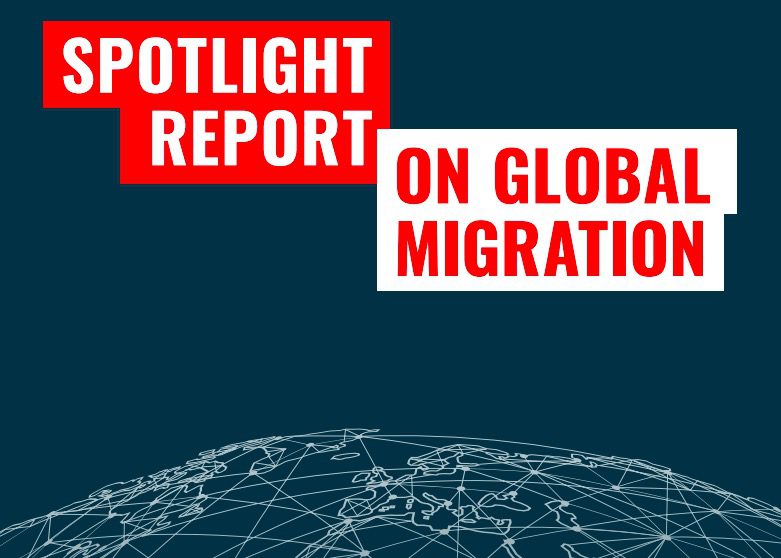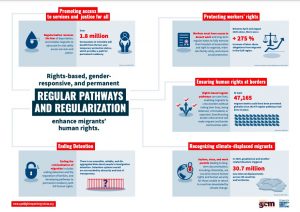
Spotlight Report on Global Migration
Executive Summary
Rampant labor exploitation in temporary migration schemes, climate crisis, prevalent vaccine apartheid, tragedies at borders and in detention centers, everyday precarities of undocumented migrants, and the deplorable working conditions of many migrant workers unequivocally indicate that we are far from realizing the Global Compact for Migration (GCM) vision of a ‘safe, orderly, and regular migration’ governance system.
The COVID-19 pandemic has emphasized the deep fault lines in our world and added to it by exacerbating nationalism, xenophobia, racism, and fear of outsiders. While migrants work in all sectors, an overwhelming majority are employed in temporary and precarious jobs and have nominal or no labor rights. Those migrants in jobs that were labeled as ‘essential’ or ‘frontline’ continued to work but often without appropriate preventive gear, economic incentives for overtime work, or hazard pay. Despite the rhetoric of ‘building back better’, there has not been any multi-state grouping to discuss an urgently-needed new social contract.
In this deeply troubling context, states have responded with closure of borders, externalization and militarization of borders, and further criminalization of migrants. They have excluded migrants from critical pandemic-related economic support and healthcare, including vaccines. Since the Global Compact for Migration was adopted in 2018, precarious and exploitative temporary bilateral labor deals have become the standard instrument for ‘regular migration’, heightening the rights violations of migrant workers. Despite intensification of environmental change and crises, there is ongoing dismissal of climate-displacement as a valid reason for seeking refuge and permanent residency in a different country.
These realities ignore the fact that ongoing conflicts in many parts of the world, the worsening climate crises, and rising poverty and hunger put people in more vulnerable situations and may force them to migrate.
The goal of ‘safe, orderly and regular’ migration governance envisioned in the GCM and Sustainable Development Goals (SDGs) is frequently being interpreted by states in a way that violates migrant rights. These practices contradict GCM’s principles and commitments: to uphold the human rights of migrants and guarantee human rights protection at international borders.
There is no evidence that creating permanent regular pathways for migrants and regularizing undocumented people will strain the economic or social system of destination countries. On the contrary, such policies will go a long way in reducing livelihood insecurity, building just societies, and strengthening the economy.
However, there is ample evidence that such a vision cannot be realized by draconian measures to curb irregular migration and by aggravating people’s already precarious situations. People are on the move because they want safety and security. They must not be treated as criminals. Migrants are not responsible for the disasters and abject poverty that they are fleeing from. When they move in search of a dignified life, they are determined to work hard and contribute to the countries of destination and origin.
To make real progress on the commitments of the Global Compact for Migration, the first International Migration Review Forum (IMRF) should strongly advocate for a shift towards rights-based, gender-responsive, and permanent regular pathways for migration, regularization of undocumented migrants, and protection of migrants’ rights, including labor rights. The IMRF and follow up action must acknowledge the reality of climate-displacement, calling for regular pathways for those who are displaced. Real global cooperation is necessary to build resilient, people-centered economies that address the drivers of migration in a coherent and realistic way.

- Read full report here.
- Read recommendations here.
- Download infographic here.
- Download bibliography here.
